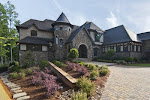Kevin Holdridge June 1, 2010
Kevin Holdridge is a residential designer who was accepted as a professional member of the American Institute of Building Designers in 2007. That same year, he founded his own business, KDH Residential Designs, in Charlotte, North Carolina. In this article, he tells us what people need to know about cost before starting construction on a “green” home.
There is no doubt that some aspects or items involved in the construction of an “green” home will be more expensive. However, cost itself usually is not the main reason why most people decide to build an environmentally friendly home in the first place.
The concept of a green home is slightly different for everyone, so the amount that a green home will cost above and beyond a non-green home will depend on how far the builder went with the process and how many different types of technologies were included in the design.
I have a feeling that sometimes people get too caught up in simply buying cool gadgets and other things that are supposed to help us all save a little money, energy, and water. But the products themselves won’t be nearly as effective if people don’t decide to change their lifestyle at the same time.
In order to get the full effect from any energy-efficient product for the home, you have to be open to changing your behaviors and habits. If not, the product can’t take on its full effect.
For instance, one example that I frequently use is water-saving showerheads. Some of these claim to save as much as 20% of the water that you would normally waste in a typical shower, and that is great. But if you don’t change your behavior, and you continue to take showers that are a half hour, then you are still wasting a lot more water than is necessary.
So being eco-conscious or “green” is as much a state of mind as it is a product of buying certain things or building your home in a certain way. People do not just need to buy new gadgets and pieces of technology. They need to learn how to use them properly in order to maximize their efficiency.
Some gadgets and appliances that we can install in new homes are expensive. But the majority of those expensive things are focused on a small market of consumers who are more interested in having the new technology than they are in actually getting the payback of using less energy or water.
As an example, doing a complete solar house and getting that home completely off the grid can be expensive. If a person hopes to get enough solar power that he can then turn around and sell the wattage back to the electric company, then that will be even more expensive. And in doing a project like that, it will take the homeowners a long time before they begin to see a payback or even before they break even. In the case of someone installing enough solar panels on their home to go entirely off the grid, they would have to be willing to stay in that home for many years before they would see a financial payback.
But that doesn’t mean there aren’t smaller and cheaper ways to make a difference. Putting in a solar hot water system, for example, is a lot cheaper than installing solar panels for the entire house electrical system. And the installation of a solar hot water heater will pay you back a lot more quickly, too. Putting energy-efficient lights all around your house is another example of something that is quick and easy to do. As something as simple as unplugging the television in your spare bedroom that never gets used is another example of something that’s free and easy. “Voltage vampires” is what all of those types of things are called. So those small differences probably save the average homeowner just as much money in the long run as a lot of the technology-heavy things that people purchase.
When people are looking for ways to obtain actual green certification for their homes without spending quite as much, we here at KDH Residential Designs have the mindset to tell people to pick the low hanging fruit, so to speak.
Although the specific items that people get points toward certification may vary based on the organization, we typically advise clients to get as many as possible of the small things that don’t cost a lot included in their home. Because those items all add points that can help a homeowner obtain green certification — even without spending a bundle.
Tuesday, June 1, 2010
Subscribe to:
Posts (Atom)
